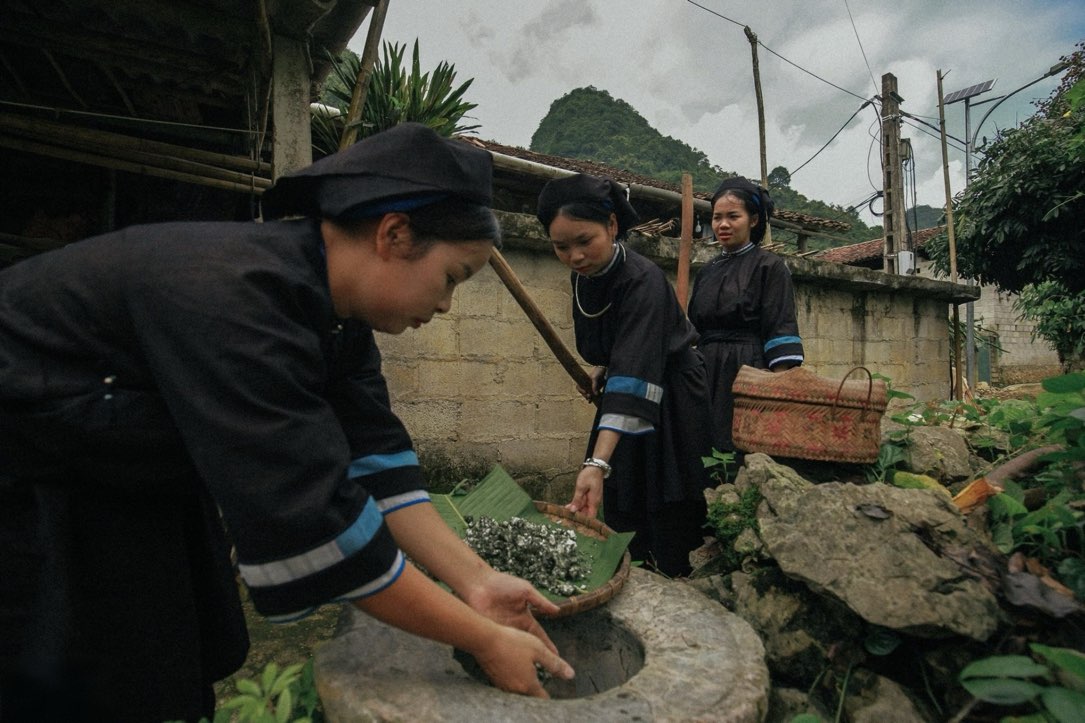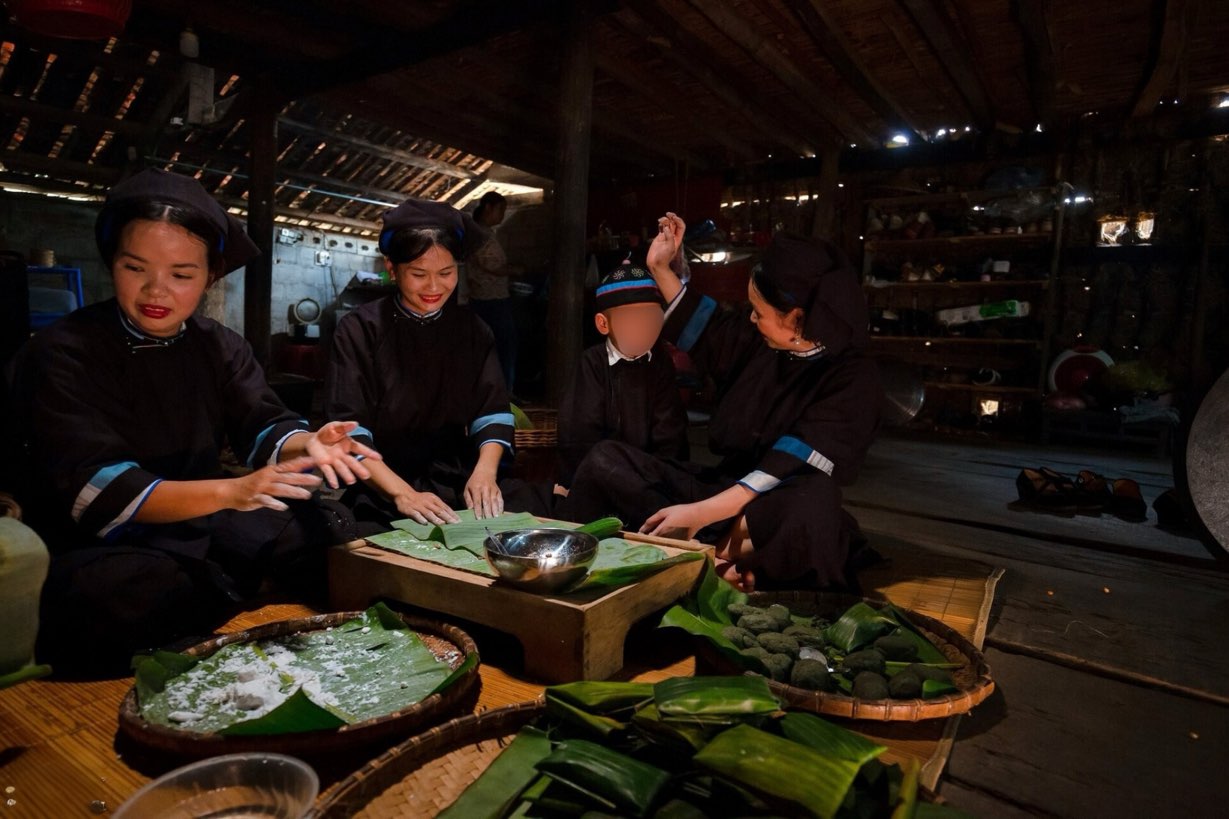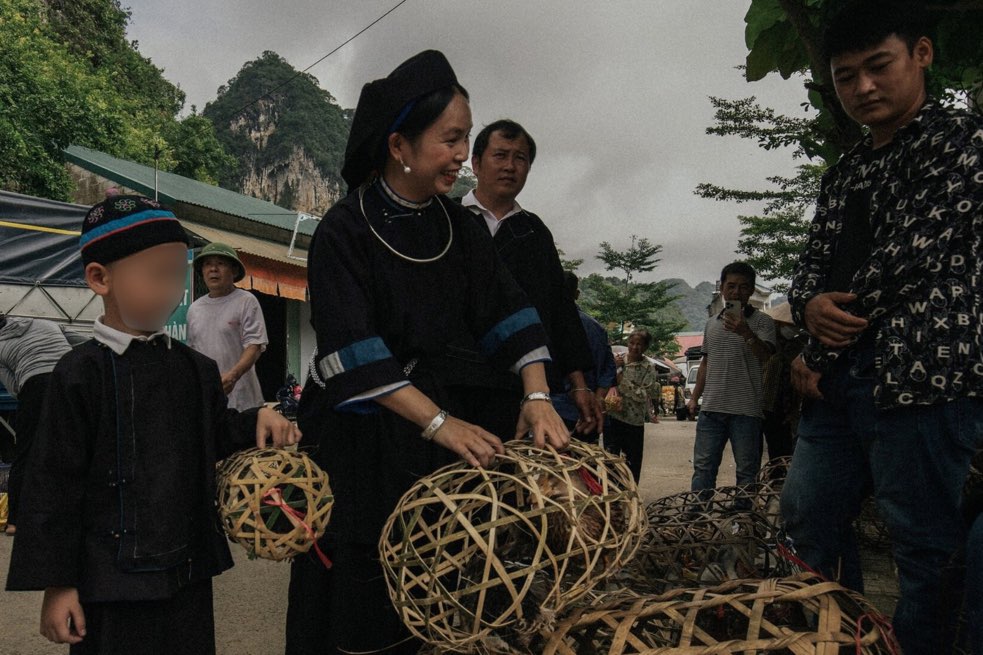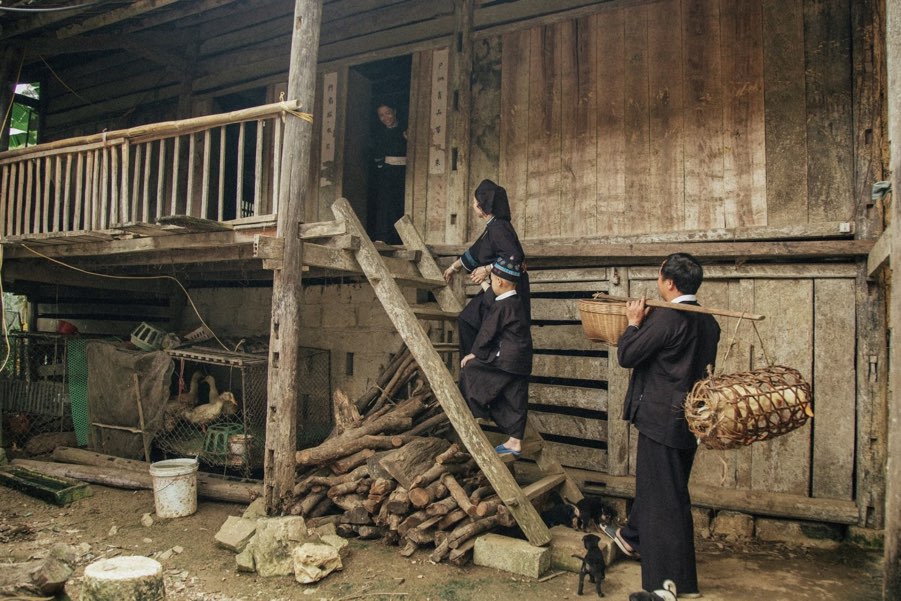For many generations, the Tay people in the North (Thai Nguyen, Cao Bang...) have maintained the custom of "Pay Tai" (going abroad) on the full moon day of the 7th lunar month.
According to tradition, the "Pay Tai" Tet takes place from the 10th to the 15th of the 7th lunar month. This is an occasion for the son-in-law and his wife and children to return to their maternal home and offer offer offerings to show their gratitude to their parents-in-law.


Before the full moon, women often prepare soaked rice to make Banh Da (a type of bananas or bananas) - a traditional cake.
Meanwhile, the husband sought to buy ducks to raise in the stream, because duck meat was the most important offering offered by the temple.
According to legend, ducks are a sacred animal of the Tay people considered the messenger between the ceiling and the sky, carrying a rooster across the sea to carry porcelain on the 15th day of the 7th lunar month.
In the past, due to economic difficulties, the husband wealed and caged bamboo to carry ducks and walking offerings to go to his maternal family's house. Now life is more prosperous and traveling is more convenient, but the meaning of "Pay Tai" still retains its value.
The Tay people's concept is that after getting married, women have few opportunities to report to their parents. Therefore, the full moon of the 7th lunar month is a special occasion for her daughter to return to take care of her, while her children show gratitude to their wife's family.
The Tay people have a saying "Eat chicken in January, eat duck in July". The drop in the tray is not only associated with the crop but also symbolizes prosperity and attachment to community spiritual life.

Mr. Nghien, a resident of Cho Don commune (Thai Nguyen) said that the offering tray for going abroad always has cakes, ducks, wine, areca nut and incense.
These items are not only to burn incense to commemorate ancestors but also to show the respect of children and grandchildren.
The Tay people in the Northern Thai Nguyen or Cao Bang often prepare ducks with Vietnamese coriander to eat with vermicelli, creating a unique flavor for the commune rice tray.
In the past, the vermicelli was handcrafted, soaked in rice, ground into powder and pressed through a wooden mold placed on a pot of boiling water.
The grooms and children often enthusiastically participate, with laughter mixed with the buzz from the pink fire.
The naturally fermented handmade vermicelli soup should have a slightly fishy smell, commonly known as "dirty vermicelli soup", when eaten with a full- gone gourd soup, add the garlic vinegar or oil with minced rice bran.

In addition to duck and tray, there are also wild vegetables, bamboo shoots, roast ducks, roast pigs, and mixed rustic dishes, creating a warm atmosphere.
During that meal, the elderly told the story of family traditions and passed on the lesson of moderation to their children and grandchildren.
In particular, this custom not only exists in the Tay community, many Kinh families who have lived long ago in the Northern Thai Nguyen region also maintain "Pay Tai".
In the midst of modern life, the custom of returning to the foreign land on the 15th day of the 7th lunar month is still preserved as a cultural symbol of the Tay ethnic group.
This is both a spiritual ritual and a bond that strengthens the family, contributing to preserving traditional identity.











